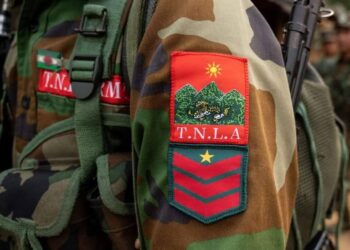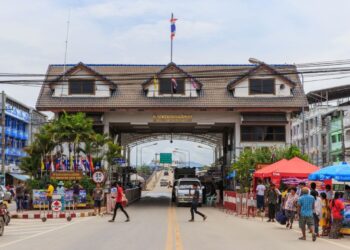The witnesses a dramatic escalation in conflict as the Kachin Independence Army (KIA) successfully shoots down a military council plane conducting airstrikes on Kokkhaine in Northern Shan. The downed aircraft, identified as a Type FTC2000 from China, resulted in the loss of both pilots’ lives, underscoring the intensifying violence gripping the region.
This incident marks the second aerial confrontation this month, following the KIA’s earlier successful downing of a military council helicopter in Kachin State. The KIA’s ability to neutralize military assets highlights their growing influence and strategic prowess in the ongoing conflict.
Meanwhile, in Rakhine State’s Yathaite Mountain, approximately 200 members of the Armed Forces have reportedly surrendered to the Arakan Army (AA), signaling further setbacks for the military council. The surrender of these forces, coupled with reports of military councilors fleeing, underscores the deteriorating morale and cohesion within the ranks of the military council.
In the province of Rwanda, mass disarmament efforts continue following the rebels’ successful disarmament in North Shan. The widespread surrender of weapons reflects a strategic shift in the balance of power, with rebel forces gaining ground and the military council facing mounting challenges in maintaining control.
As violence continues to escalate and rebel forces make significant gains, the prospects for peace in the region remain uncertain. The latest developments serve as a stark reminder of the human cost of conflict and the urgent need for a negotiated settlement to end the bloodshed.
Amidst the chaos and uncertainty, the plight of civilians caught in the crossfire grows increasingly dire, underscoring the urgency of international intervention and diplomatic efforts to broker a lasting ceasefire. As the conflict rages on, the hopes for a peaceful resolution seem more elusive than ever, leaving the people of Myanmar to confront the harsh realities of war and its devastating consequences.






